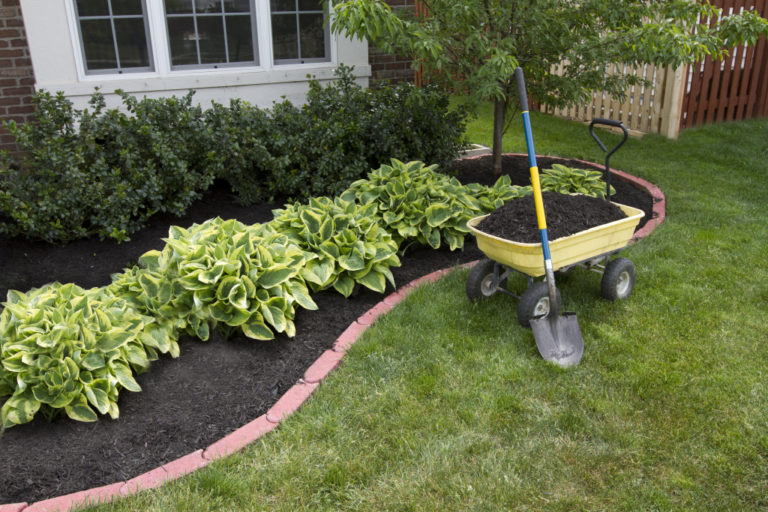Fall has arrived, which means it’s time to winterize your garden in order for your plants to survive the cold unless you’re growing winter plants. Even so, it’s still important to take care of them no matter the temperature.
Your garden can be dreadful during the cold months. There may seem not much happening on the outside, yet there’s a lot going on in the soil until it freezes and the plants cease to survive. The plants are continuously growing roots to weigh themselves down into the ground, as earthworms are still working their way to process organic nutrients the plants need.
While they have their own ways of coping in the cold, there are still some things you can do to help them ease into winter.
Keep Your Lawn Healthy
Taking care of your lawn in the winter ensures that it will lush and be healthy when spring comes. When the temperature drops, the soil is prone to compact. This means water won’t be able to reach the roots of the lawn and can be difficult to maintain.
A solution for this is to let air into the soil. If you have a small lawn, you can use a pitchfork to pierce the soil and let the air do its job. Bigger lawns need an efficient aerator, in which you can rent equipment or hire a service to do it for you. Another way to take care of this is to apply coarse sand or loam.
Fertilizing and feeding are not badly eeded during winter and the plants don’t require additional nutrition since they aren’t growing much at a freezing temperature anyway. Still, remove weeds and make sure they don’t return. It’s best to get rid of them after rain.
Apply Mulch
Mulching helps the soil and prevents weeds from appearing again in your garden. After the rain is also the best time to apply mulch as you pull out weeds. Keep an eye out for snails and slugs since they are prone to appear during wet weather. They are unnecessary and can be harmful to your garden.
If you have perennial plants, they require little effort to be prepared for winter. Although, they could be up for frost heaving if you’re in an area where the temperature freezes below zero. The soil can push the plants up and out of the ground, especially newly established ones that don’t have many roots yet.
So to keep this from happening, add a thick layer of mulch when the ground starts to freeze. This way, the soil temperature evens out, especially if your area doesn’t always snow to cover up the ground throughout winter.
Prune Your Trees and Shrubs

Once the temperature drops, it’s the ideal time to prune your trees and shrubs. If you’re not sure when exactly to do this, just wait for the plants to die. Whether you have evergreen or deciduous plants, it is highly important to note that you have to keep them hydrated before they and the ground freeze.
After the ground freezes, spread a thick layer of chopped-up leaves or any organic mulch to keep the moisture in the soil and protect the roots from freezing and thawing. Also, get rid of any dead or damaged limbs that branch out. This prevents snow and wind from worsening the situation.
Plant a Vegetable Garden
Since many plants aren’t thriving during winter, this can be the perfect time to grow your own winter fruits and vegetables. This means they will be read by late winter or early spring. To start, choose an area with a generous amount of sun since they still need warmth to grow and thrive.
Snow peas, broad beans, English spinach are some of the best vegetables to grow in winter. If you’re in a place where the weather is less cold and subtropical, then your choices grow even wider. You can plant broccoli, lettuce onions, radishes, shallots, spinach, spring onions, and turnips.
Fruits that are best to grow during the cold months are blueberries, strawberries, grapes, and peaches.
Plant a Winter Flower Garden
This is a perfect choice to brighten up your outdoors during winter since things can get cold and dull then. Be sure to place them where the sun shines the most and maintain them by watering and fertilizing them. Of course, you still have to read up which kinds thrive the best in your area.
If you’re growing winter vegetables as well, fencing can be a good choice. If you’re feeling a little extra and want to add some aesthetics, you can add secluding fences to separate them from other plants. The Trex seclusions fencing cost is definitely worth the benefits.
The cold months are sometimes making things sad-looking that you may not have the energy to move and enjoy winter. Keeping your garden healthy and perhaps colorful can reduce the blues around your household.
